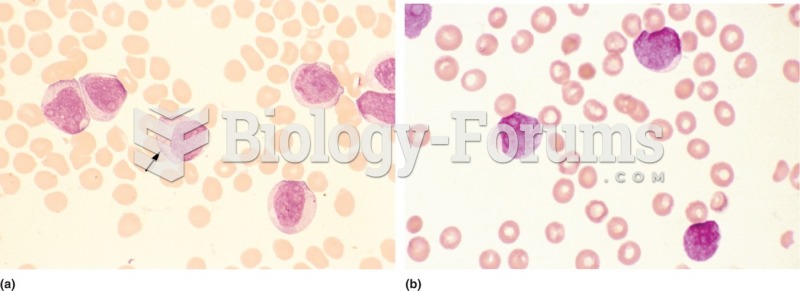|
|
|
An identified risk factor for osteoporosis is the intake of excessive amounts of vitamin A. Dietary intake of approximately double the recommended daily amount of vitamin A, by women, has been shown to reduce bone mineral density and increase the chances for hip fractures compared with women who consumed the recommended daily amount (or less) of vitamin A.
More than 4.4billion prescriptions were dispensed within the United States in 2016.
Prostaglandins were first isolated from human semen in Sweden in the 1930s. They were so named because the researcher thought that they came from the prostate gland. In fact, prostaglandins exist and are synthesized in almost every cell of the body.
The Romans did not use numerals to indicate fractions but instead used words to indicate parts of a whole.
About 3% of all pregnant women will give birth to twins, which is an increase in rate of nearly 60% since the early 1980s.






